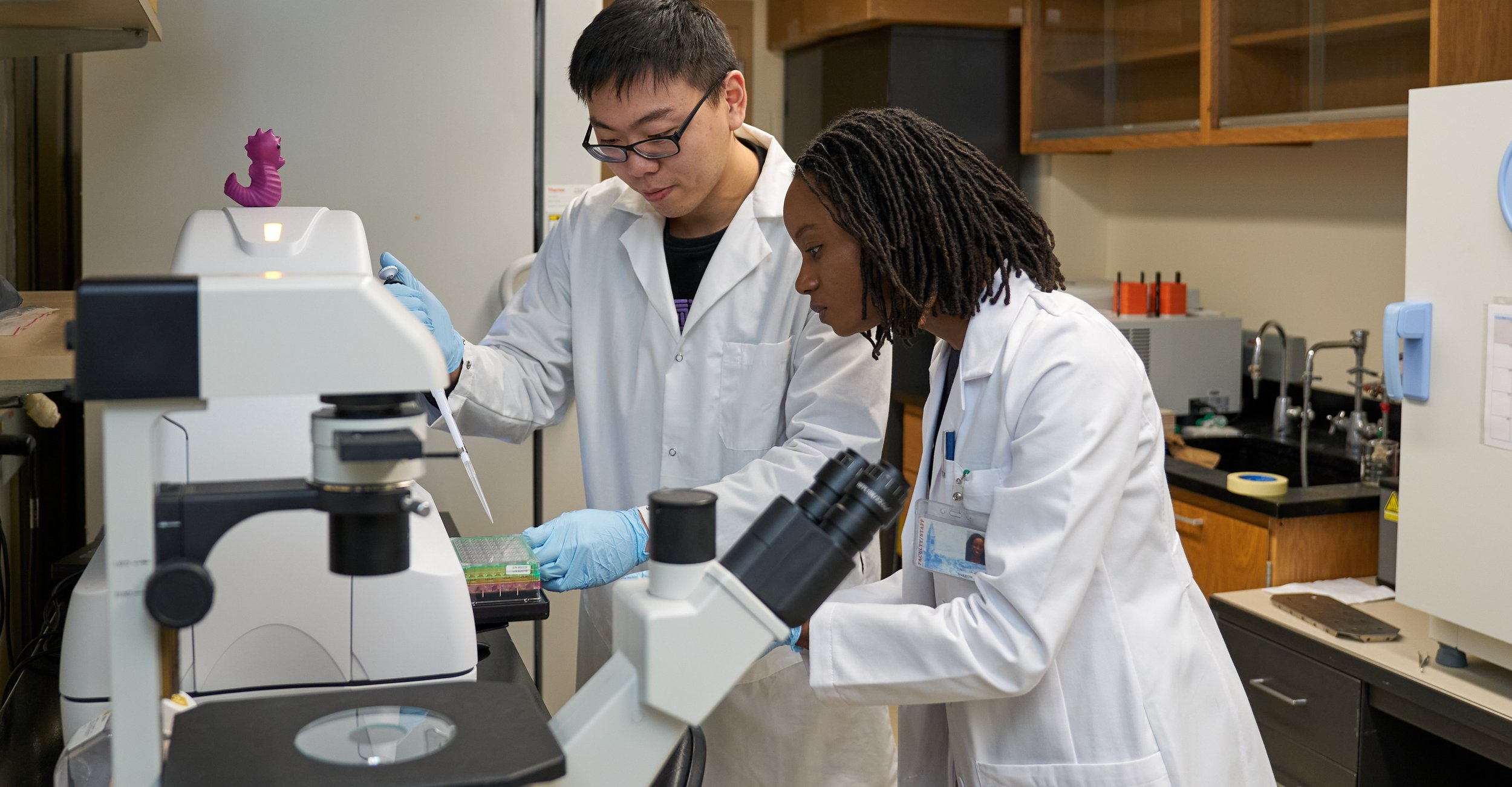
ABOUT THE PI
Joeva Barrow, Ph.D., R.D. is an Assistant Professor of Molecular Nutrition at Cornell University Division of Nutritional Sciences. She completed her Bachelor of Science degree in 2006 before completing her Masters and combined Dietetic internship program at the University of Florida in 2008 where she was certified as a Registered Dietitian.
While working at the frontlines in clinical dietetics providing medical nutrition therapy to patients with metabolic diseases, Dr. Barrow quickly discovered that despite the excellent standards of care from the medical community, our basic knowledge of metabolism and corresponding therapeutic capacity was quite limited. Dr. Barrow became fascinated with the concept that metabolic changes can dramatically alter genetic and epigenetic patterning and when dysregulated, leads to the development of disease. If we can improve our mechanistic understanding of nutrient absorption, transport, metabolism, bioenergetics, and gene regulation, it would provide a platform to identify therapeutic targets that could reduce the onset of, and provide treatment for obesity and associated disorders such as mitochondrial diseases, diabetes, and other metabolic syndromes.
Fueled by that passion, Dr. Barrow pursued and obtained her Ph.D. in Biochemistry and Molecular Biology at the University of Florida (2013) and then moved to Boston to complete her postdoctoral training at the Harvard Medical School/ Dana-Farber Cancer institute in Cell Metabolism and Cancer Biology (2018).
OUR PROJECTS
Obesity and associated metabolic disease such as type 2 diabetes continue to be the leading cause of preventable death worldwide. Additional research into novel treatments beyond our current options are therefore warranted. One promising experimental approach to correct the metabolic dysfunction associated with obesity is to activate brown fat non-shivering thermogenesis. The Barrow lab leverages various proteomics, transcriptomics, and metabolomic platforms paired with custom AAV viral targeting, and genetic mouse models to uncover novel molecular targets that harbor therapeutic potential to combat obesity at the molecular level.
Obesity and Metabolic Disease
Mitochondrial disease encompasses a heterogeneous group of disorders that originates either from maternally-inherited genetic mutations in mitochondrial DNA or from somatic mutations in the nuclear genome. These mutations typically impair the mitochondrial electron transport chain (ETC) system responsible for the generation of ATP and if uncorrected will lead to death. There is currently no option of a cure or effective therapy. The Barrow lab uses high throughput screening platforms in physiologically-relevant systems such as primary muscle stem cells and genetic mouse models to identify small molecules that can overcome mitochondrial dysfunction.
Mitochondrial Disease and Myopathies
It is still unknown why certain individuals respond to dietary treatments and interventions while other groups do not. The Barrow lab investigates various nutrient-gene interactions in humans beginning at the human level with comprehensive dietary interventions and nutrition assessments, and then taking a deep molecular dive to unveil mechanisms to understand the human precision nutrition response.
Precision Nutrition and Translation
OUR RESOURCES
Agilent Xfe 24 and 96 Seahorse Bioanalyzer
Temperature-controlled Sable Promethion High Resolution Metabolic and Behavioral Phenotyping System (16 cage capacity)
Biotechnology Resource Center
Agilent Lionheart FX Automated Microscope
Agilent Bravo Automated Liquid Handler Platform for HTS
Thermo-Fisher MultiDrop Combi Dispenser
Human Metabolic Research Unit (HMRU)





